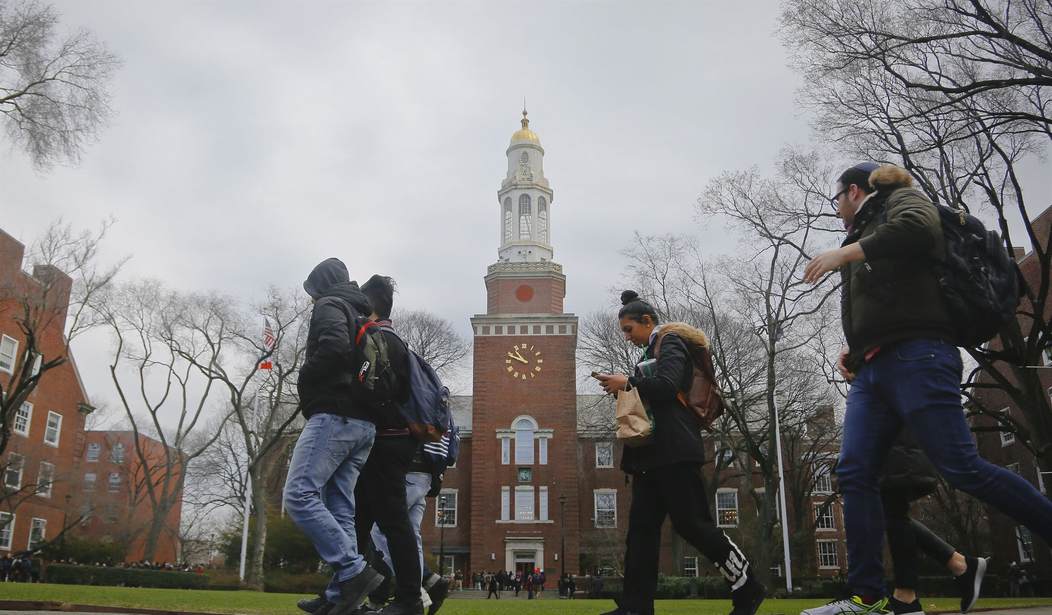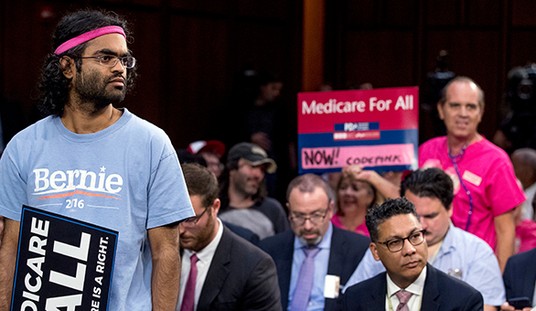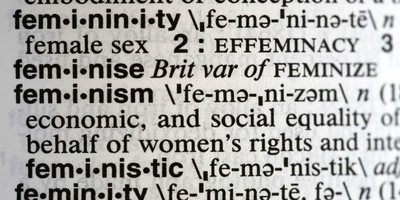With the waves of layoffs and news outlets shuttering - in just the past few months - there is understandable nervousness-slash-panic across the media landscape. We are watching the immolation of the once-standard journalism industry, and this delivers a reckoning in that many are wondering what will remain after a transformation.
One of the common refrains we hear concerning this tectonic shifting is that there is the creation of “news deserts”. This refers to the evaporation of local news outlets and the concern that this absence will lead to local officials and politicians racing around unchecked. Of course, this ignores that the internet is providing this very type of coverage locally, but for some reason, these upstart outlets do not count. (In my state alone I can cite numerous sites covering state and local politics, doing the very type of legwork said to have disappeared).
At Axios Sarah Fisher, in her “Media Trends” newsletter, suggested that college newspapers are “increasingly filling the void for communities that have lost local papers.” It is a compelling thought on its surface, but upon the barest of analysis this hardly bodes positive for those areas, nor journalism in general. The concept that these campus publications could become a saving grace in the industry is not as clear-cut as thought. There are several challenges seen with this “solution.”
They Are the Minors
I always enjoyed when the likes of Brian Stelter, his ward Oliver Darcy, and other media critics would call out Fox News as being absent serious journalism standards. It was long said Fox was deficient in editorial oversight and/or lacking the fact-checking framework of the “real” news outlets. (Yes, this was a laughable lecture coming from someone at CNN.)
But to operate that college papers have this elevated level of reportorial rigor is a bit fanciful. These sites are, by definition, still learning the ropes, and even the editorial side of things has to be regarded as being in development.
Recommended
The Liberal Incubators
We have to be honest on this one. Universities have been positioned on the left wing for some time, and just over the past generation, they have become only more extreme. In recent years we have seen concepts on campus that support wildly left-wing positions, from communist sympathy to hostility towards free speech. DEI has been an infecting presence for the past decade. Look at the outbreak of antisemitism we have seen mushrooming at schools nationwide, as a newer revelation.
The very fact that possibly the most esteemed university in the US - Harvard - has been reduced to a punchline in recent months due to its extremist internal policies becoming exposed. To suggest periodicals deriving from these environments will be non-partisan or unbiased is farcical. Case in point: Here is a recent piece from The Harvard Business Review concerning the distinctly non-business topic of how to properly introduce your preferred pronouns into conversations.
Insulated Focus
Last October the Associated Press highlighted how a number of college newspapers were exhibiting elevated examples of journalism. There were stories from differing campuses that delivered impactful reporting and led to significant effects, sure. A Stanford investigation into their president provoked his resignation. At Northwestern University a hazing scandal regarding the football team had serious ramifications. The Daily Tarheel, at North Carolina University, was lauded for coverage of a shooting, and other school papers were shown producing compelling journalism.
Except in most, if not all, of these examples we see hard-nosed reporting that concerns issues on campus. That, understandably, would be where the focus of student journalists would rest. To rely upon these upstarts to cover the broader interests of the communities where they are located is a reach, at best.
Danger Of Influence
A study from the University of Florida shows another challenge. College papers have not been immune to the drop in advertising revenues, but they have a safety net. The study shows that at the major universities more than half of the newspapers are supported by the school financially, and only about 10% operate as independent non-profits. This impacts the amount of autonomy these papers enjoy, and it is likely to affect the manner they cover stories. It has to be regarded as a genuine concern that the quality of journalism might be influenced with the Paycheck of Damocles swaying above their newsrooms.
The Lack Of Objectivity
As I have been covering the news industry for years it has been more than apparent that the slide of journalism to the left has not just taken place but it is ongoing. Journalism schools continue to churn out left-leaning, activist-minded students into the media ecosystem.
A survey conducted by Syracuse University shows barely over 3% of professional journalists consider themselves to be Republican/conservative. The amount admitting to being Democrats has grown over the years to more than ⅓ of newsrooms.
J-schools, and other university settings, have dwindling motivation to guide burgeoning journalists to analyze and report with objectivity. Instead they are taught facts are interpretational, as phrases such as “my truth” seep into coverage, and nuance and context are frequently used to dilute facts. Look also at the growing acceptance of those in the press to say that providing coverage of both sides in their reporting is a disservice and gives credence to concepts they deem to be invalid.
College campuses have long been seen as hives of left-wing and even extremist thought, so the idea of relying on the local news to be provided by these outlets contained inside that hotbox of thought is a fraught concept. At best, thinking that college papers can supplant a local news organ is little more than what is seen in an infomercial - slapping a Flex Seal tape over a gushing hole and thinking the hemorrhaging has stopped.
At worst, it is further legitimizing the deeply biased approach to news. This will only extend the ill-effects seen in the media industry, perpetuating the original problem of the loss of legitimate news outlets.

























Join the conversation as a VIP Member